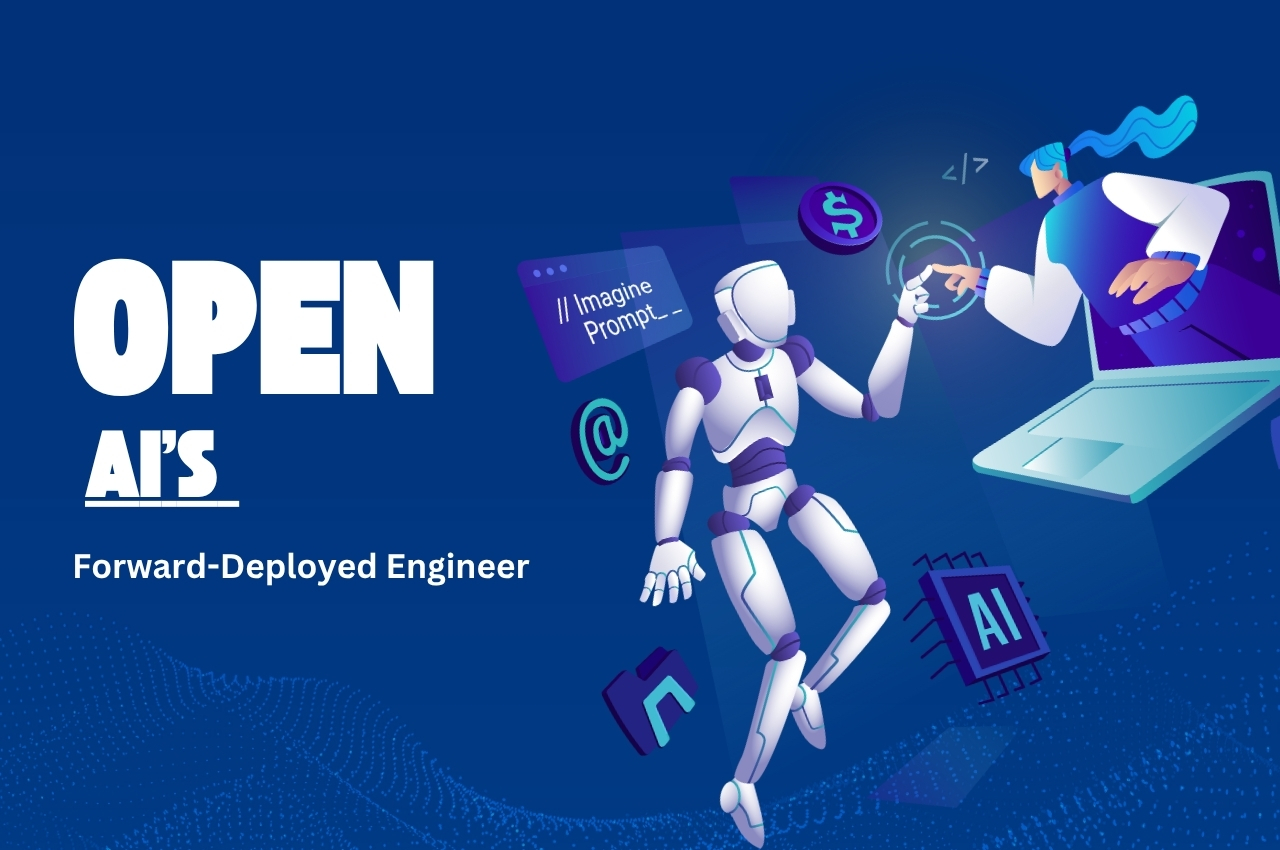OpenAI recently announced a new engineering role aimed at helping large companies accelerate their AI projects. The role, called a ‘forward-deployment engineer’, is becoming increasingly popular in the tech world and aims to bring complex AI experiments to real production use.
What is the new role of ‘Forward-Deployed Engineer’?
Oliver Jay, global managing director of OpenAI, revealed the new role at the Fortune Brainstorm AI 2025 conference in Singapore. “This new model, in which we deploy our engineers directly to our customers’ biggest projects, is a unique way to rapidly scale AI to mass production,” he said. The role was originally popularized by software company Palantir, where engineers work with customers to improve products based on their needs. This approach helps companies quickly bring their AI technology to life.
Learning and Growing While on Earth
Olivier J added that the company has tested this new role with some early customers to understand its usefulness in real-world situations. “We like to learn by working in the field,” he said. “And through this process, we have learned a lot of new techniques.” OpenAI’s ‘bots on the ground’ strategy helps it expand globally and better serve its customers. This strategy allows OpenAI to not only support its existing customers, but also open up new opportunities for AI.
The goal of OpenAI: Making AI Viable
OpenAI has always aimed to bring artificial intelligence to everyone. This new position is part of a larger goal to demonstrate that OpenAI isn’t just focused on researching but is also interested in practical applications. Large companies often encounter technical obstacles and practical problems when they work with AI. The role of the Forward-Deployed Engineering is specifically designed to address this issue.
Why Forward-Deployed Engineers Could Change the Game
As AI adoption approaches a paradigm shift, the rise of Forward-Deployed Engineers (FDE) is a sign that companies have changed their approach. OpenAI embeds its experts into projects, rather than simply providing them with tools. They act both as problem solvers and translators to translate cutting-edge AI into business solutions.
FDEs, who are on site or deeply integrated into a client team, can quickly respond to problems, customize AI systems for unique cases and make sure that the project doesn’t get stuck in testing. The model is not only a faster way to implement AI, but it also gives enterprises confidence when deploying AI on a large scale.
The Competitive Edge for Enterprises
AI can have a steep learning curve for companies in highly regulated industries. Engineers who are deployed forward help to bridge the gap between technical expertise and business goals. They reduce the friction between AI deployment and research, helping to ensure that projects have a measurable impact.
Insiders in the tech industry believe that this role will become standard for enterprise AI adoption. It is similar to how cloud migration experts became indispensable during early cloud computing days. A dedicated AI partner is a significant advantage in an age where market leaders are determined by speed and accuracy.
Shaping the Future of AI Collaboration
OpenAI’s FDE role reflects an industry trend: the shift from AI hype towards AI results. Business owners no longer just want AI to “experiment”, they want it to drive revenue, productivity and innovation. OpenAI positions itself as not just a technology company, but also as a strategic partner for shaping an AI-powered world by placing engineers in the center of the transformation.
We may soon see Forward-Deployed Engineers transform into an entirely new breed of AI professional, combining coding skills with business acumen, and making them essential to the next wave in technological advancement.
Conclusion
OpenAI has taken a major step forward with the introduction of a new role, Forward-Deployed Engineering. This is a key part of its mission to transform AI from a mere tool for experiments into a powerful catalyst for business transformation. OpenAI bridges the gap between real-world applications and innovation by embedding engineers into enterprise projects. The hands-on method ensures that AI solutions are tailored and scalable. It also makes them more impactful. This will pave the way to a world where AI integration becomes as easy as any other business technology. The Forward-Deployed Engineer, as more companies adopt this model, could be the bridge that connects AI potential to AI reality. This would set a new standard in how modern technology is implemented.
FAQs
1. What exactly is a Forward-Deployed Engineer (FDE)?
A Forward-Deployed Engineer is a technical expert who works directly with a company’s internal teams to implement AI solutions, ensuring they are adapted to the organization’s unique needs and deployed effectively in real-world scenarios.
2. How is this role different from a regular AI engineer?
While AI engineers typically focus on building models and tools in a lab or development environment, Forward-Deployed Engineers work hands-on with clients, often on-site, to integrate these solutions into actual production systems.
3. Why did OpenAI introduce this role?
OpenAI recognized that many large companies face challenges moving from AI experimentation to production. The FDE role was designed to speed up deployment, solve real-time problems, and maximize the return on AI investments.
4. Which industries can benefit most from Forward-Deployed Engineers?
Highly regulated and technically complex industries—such as healthcare, finance, energy, and manufacturing—stand to benefit greatly due to the specialized integration and compliance challenges they face.
5. How does this approach give companies a competitive edge?
By having direct access to OpenAI’s experts, companies can overcome technical hurdles faster, reduce deployment risks, and accelerate the time it takes to see measurable results from AI initiatives.
6. Is the Forward-Deployed Engineer role unique to OpenAI?
No. The concept was popularized by Palantir, but OpenAI has adapted it for AI development and deployment, making it a key strategy for bringing advanced AI into real-world applications.
7. Could this role become common across the tech industry?
Yes. As AI adoption grows, the need for hands-on deployment expertise will likely increase, making FDEs an essential part of enterprise AI strategies worldwide.

